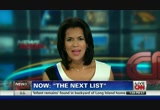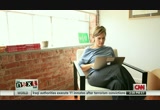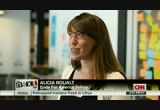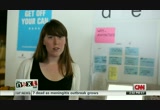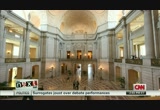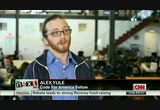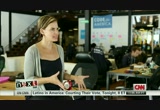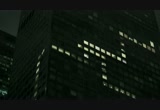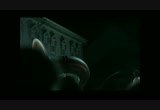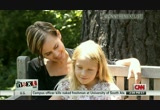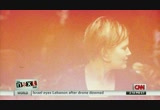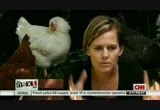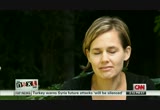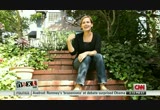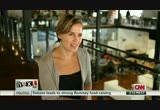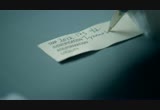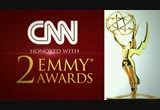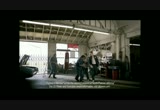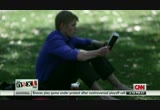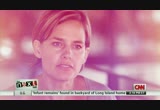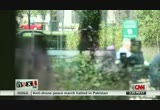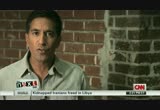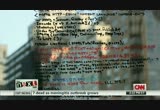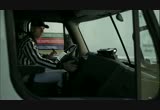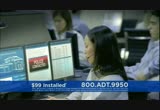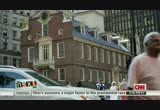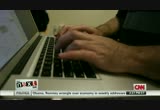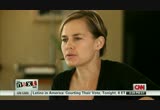tv The Next List CNN October 7, 2012 11:00am-11:30am PDT
11:00 am
acting erratically is dead after a confrontation with a campus police officer. more on that story later on. "the next list" with sanjay gupta starts right now. jennifer polk a has this electrifying idea. she thinks geeks can fix government. >> geeks have changed the world so much in the past 10 or 20 years but they haven't changed government yet. >> jennifer created "code for america." aits nonprofit that takes the smartest programmers, web designers and technology from places like google and apple and drops them into city halls all over the country. their mission: to cut through bureaucracy. >> for us as a city, she has been the face of government. >> everybody likes to call jen
11:01 am
polka a visionary. i'm skeptical calling anyone that, but she is one of those people. >> it allows people to text feedback directly to their city planners. >> the stuff we're building can really change the bottom line. >> it's really remarkable when you think about what we don't like about government, we, the people created. if we created it, we can also fix it. >> i'm dr. sanjay gupta, and this is "the next list." >> we proudly use the word geek. we call ourselves the peace corps for geeks. we're in the middle of our only second ever year of the code for america fellowship. we've got 26 fellows working inside eight cities. not every code for america follows a programmer.
11:02 am
>> i'm actually an urban planner by trade. we have a lawyer, we have a graphic designer. they really make beautiful and effective products. >> they spend a lot of time with the cities, but actually they're based here in san francisco at our offices. we're here on ninth street in the civic center area of san francisco. each of the teams has a space here where they're moving their sticky notes or they brainstorm things around. this great team took this prime real estate in the office, which is great. they are working on the problem of light and properties. there is a fantastic community group in detroit that goes out and surveys the communities. information they gather from a neighborhood can sometimes take nine months to become actionable. so they go to a technical assistance provider or data analyst and they say, here's all the information about my
11:03 am
community. can you turn it into a report? so we wanted to take the expert out of the equation and really make it about the people who are collecting this data about the communities. so what we came up with is a tool kit called localdata. it creates a web interstate that any non-technical person could easily create a survey using maps. we could say we're going to create an instance of these couple blocks. they made a way of going from nine months to a couple days. we want to help government work better for everybody with the people on the power of the web. i love their outcomes here, right? what is their criteria for this project? happiness. there are some great things that came out of last year. one of them was this one. you can go down to city hall and get a data set of public art that your city maintains. suddenly you have a walking tour of public art in your city.
11:04 am
really simple. we have this idea of bureaucracy in local government, and it's generally things that we're frustrated at. it doesn't work the way we like it to work. if you think about the past ten years, what happened to our daily personal life? we're more convenient and more connected, but the government is falling behind. and that's a real problem. >> bureaucracy is definitely one of the challenges. instead of looking at ourselves like a startup in government, for us we think there's a new model for government. >> mayor emanuel in chicago calls this a view. he wants to be able to see every step of the way to get that fedex package. he believes you should be tra transparent about that to citizens.
11:05 am
good morning and we wilcome to stand-up. >> there is a way to build new things for the users they're working for. >> we're reaching out to government and city officials this week and next week. >> we're building it for citizens, for the people who run government that they can make cities work better for everyone. >> we have something that permeates the air here. >> people are living on $35,000 a year, so they're certainly not here for the money. they're here to change this institution. >> we did public user testing with our bus app which is amazing because we now have a functional app. young people aren't really interested in the service. they think we want to put the fields we already do have in a professional context to be used
11:06 am
in something. >> code of america believes we can make government work the way citizens want it to, and what we need to do to get that path in is to bring talented web developers together with city government and just reimagine a new government that works for citizens. the partnership with o'reilly media -- how do you get from here... let's say you want to get ahead in your career. to here? at university of phoenix we're moving career planning forward so you can start figuring that out sooner. in fact,
11:07 am
by thinking about where you want your education to lead, while you're still in school, you might find the best route leads somewhere you weren't even looking. let's get to work. [ man ] when i'm in my zone... every move i make is a statement... ♪ ...that inspires me to make my mark. ♪ [ male announcer ] the all-new lexus es 350. ♪
11:08 am
it'll cause cavities, bad breath. patients will try and deal with it by drinking water. water will work for a few seconds but if you're not drinking it, it's going to get dry again. i recommend biotene. all the biotene products like the oral rinse...the sprays have enzymes in them. the whole formulation just works very well. it leaves the mouth feeling fresh. if i'm happy with the results and my patients are happy with the results, i don't need to look any farther.
11:10 am
this is my daughter clementine. she's nine. she likes to play in the backyard. don't you, baby? yeah. she likes to take care of our chickens. we're in my backyard in oakland, california. it's our home and the home of our chickens, and sometimes a garden. but it looks like we're in the country and we're really in a city. and cities have become pretty important to me in my work. we're right near public education, we're right near downtown, we're part of a major metropolitan area. but what i like about living here is that we also grow some of our own food, and the chickens help out with that, obviously. and i think that in the future, cities are going to be more sustainable that way. part of what we're trying to do with cities.
11:11 am
i realized -- i think it was sort of in my mid-30s that i realized i'm always on the border between two things. in high school i was sort of friends with the geeks and friends with the soshes and everything else and not solidly in one camp. i've always lived on the borders. okay, guys. let's wrap it up. i've also always lived in the borders. like right now we're three houses from the border between oakland and piedmont. i lived right on the border of manhattan and the bronx growing up. i realize i've always been on the borders physically and socially. with code for america, we're so clearly on this border between -- it's not even a border because the geek world and the government world hardly touched at all. it was really finding these absolutely different sort of universes and trying to bring
11:12 am
them together and say, there is real value in this universe, understanding this one and vice versa. there is something good that can come out of that. and you speak geek here and you speak gov here, but we can help that translation happen. and we can create something that never existed before. i never thought that i would be running something like code for america. this whole arc has been something of a surprise for me. i graduated college thinking that i would do good in the world. i didn't really know what, but i figured you would go work at a nonprofit and that's how you would make your mark, doing something good. i tried them and i really didn't like them. i didn't feel creative and i didn't feel like i was fulfilling my potential. but i ended up having an offer from a friend to go travel around the world, and i did that, and that just changed my life. it was an amazing thing.
11:13 am
when i came back, i needed a job and i ended up sort of accidentally falling into the technology industry, and that was this, you know, sharp left turn for me. it wasn't at all what i thought i would do. i didn't know anything about technology. i didn't think i liked it. but i loved it. and i love the people in it. and i found that the tech industry actually is full of incredibly creative, interesting people who put two and two together in an interesting way. in particular there were game developers i was working with running this game developers conference. they're amazing. crazy, creative, very smart but in a left brain and right brain kind of way, and it really felt to me like somewhere i could do something important, or at least something worthwhile. i left that job after nine years when i had my daughter. i took a year off when clementine was born and i came back to web2o.
11:14 am
that was when i partnered with media. you feel like you're an animal farm all the time. i have a friend that was the mayor of tucson for many, many years. he's married to my best friend from childhood. and he started writing me and saying, why don't you try to get people from your web tour world to write apps for cities? get me some web tour developers to come write apps for tucson. i didn't know how to get them interested in working with government. then one day his wife and i were having a beer, and we were talking about his experience doing teach for america. and a light bulb went off. and i said, well, what if that's how we get your apps for tucson written? what if we did a code for america? and it just seemed like the right idea. everyone kind of went quiet for a minute. that night i told my dad, i'm going to quit my job but i'm
11:15 am
going to start this nonprofit. i think he thought i was crazy, but six months later i did it. >> they show you that it's quicker and easier than you think. >> this is just a fantastic project. >> oh, wow. ♪ into a scooter that talks to the cloud? ♪ or make 70,000 trades a second... ♪ reach one customer at a time? ♪ how do you help doctors turn billions of bytes of shared information... ♪ into a fifth anniversary of remission? ♪ or turn 30-million artifacts... ♪
11:16 am
into a high-tech masterpiece? ♪ whatever your business challenge, dell has the technology and services to help you solve it. [ male announcer ] red lobster's endless shrimp is back... but only for a limited time! try as much as you like, any way you like! like parmesan crusted shrimp just $14.99. i'm ryan isabell and i sea food differently.
11:18 am
our philadelphia team took this very modest section of the wall. this is only one of their projects. it really comes from a deep and interesting partnership with the city planners in philadelphia. >> one ofhe common themes is the idea of engagement, how to engage with citizens and how to hear what people want. >> at the city planning commission where i work, what we're in the midst of right now is writing a new comprehensive plan for the city. in terms of priorities, it became clear very early on that
11:19 am
one of the most important aspects of our work is engaging people in a meaningful way. >> the planning commission had three specific questions, how people interacted with public spaces, so specifically how people use parks and city recreation areas in the city, and also getting data around how people perceive the kid friendliness of the city. >> the way you normally do this in city government is that you sketch some stuff out and you hold some meetings that happen generally in the evenings at city hall and you invite people to come and give feedback. >> but there are also some challenges with that, namely that it's very time and resource intensive. >> the meetings are long, they're hard to schedule, they're hard for people to attend. they're inconvenient, they're expensive. they're really important for collecting deep data, but they didn't have an easy way to collect broad or more represent representative data about how people use the city. >> so what michelle lee and alex
11:20 am
ule have done is design these fantastic-looking posters that ask specific questions about things the planners are considering. >> only 42% of philadelphians have access to broadband internet at home while 92% of homes have access to devices with text messaging, so we knew that messaging would play a role in whatever we built. >> today we are in sisters city park in the heart of philadelphia. the idea of kid friendliness was making about all the places in center city philadelphia where kids are. so identifying those kinds of locations as a place to put up these posters that ask passers-by that simple question of what would you do to improve the kid friendliness of philadelphia? the milk and honey cafe here is a perfect example. we were able to put a small poster on every table in the cafe so that anyone stopping by with their kids and they see on
11:21 am
the table, look, the city is kg -- asking me a question. maybe i'll answer it. >> this is an easy way to get feedback from the city of philadelphia rather than trying to get people to sit through a whole meeting just to say the one thing that was relevant for them. >> the response rate for it has gotten a lot of responses. you're lucky if you get 50 to 100 participants. >> i wanted to call it text in the city. >> it is created for philadelphia but the goal was really for all the open sources of applications that they're available for anybody, so it has been deployed in several other cities, salt lake city, ult ota
11:22 am
chattanooga, tennessee. boston is using it. >> it can be found on the code for america website. this transparency has brought some surprising results. >> this is just a fantastic project, and it's taken off, if you think about it. >> when you launched textizen, we put a message on the website saying if anybody is interested in it, fill out the form on the website. >> how many filled out that form? can you give me a latest number? >> the latest number is 127. >> it can spread because it's open source. this is a code for america project. this can spread to other places pretty quickly, which is really different than how cities normally procure software. it can take a very long time. >> i think what code for america has been able to bring is this big megaphone. >> they show you that it's quicker and easier than you think in terms of developing
11:23 am
these tools. code for america has taught me that in many ways the magic was sort of in me and in us and in the city all along. we can do this. >> if that application had gone through regular channels, it would have cost $2 million and taken two years. doesn't have a. no way. [ male announcer ] sorry. alka-seltzer plus fights your worst cold symptoms plus has a fast-acting decongestant to relieve your stuffy nose. thanks. [ male announcer ] you're welcome. that's the cold truth! [ male announcer ] alka-seltzer plus. ♪ oh what a relief it is! [ male announcer ] try new alka-seltzer plus severe allergy to treat allergy symptoms plus sinus congestion and pain.
11:24 am
11:26 am
if you know anything that's going on in local government, you know that cities are incredibly cash strapped. we're cutting back on garbage being if i could upicked up, we back on parks being maintained, we're cutting back on the playground equipment our kids play on being safe. >> boston, like any other place, has been hit by the recessio but i think where code of america really helps in dealing with that is because we're now able to develop lightweight
11:27 am
tools that don't cost very much. >> one of the projects from last year i like to talk about is discoverbps.org. we had this team in boston in 2011. there had been an article written in the boston globe about how frustrated parents were. they couldn't get their kids assigned to the right public school. the way the public schools were disseminating this information was a 28-page brochure with tiny type describing each of the schools, but you couldn't really figure out which of the schools your kid was eligible for. >> it was confusing on paper, but once you put it on a map, it's not that confusing. it's pretty clear. >> one of the fellows happened to have some free time. he with a couple other fellows put up pbs.org. you put the age of your kids, whether you have any other siblings assigned to another school, you click through and favorite them, take notes, read
11:28 am
more about schools. >> using some of these kinds of simple tricks of, you know, modern web design, we were able to actually make a government procedure a lot more intuitive and approachable for the citizens of boston. >> parents love these tools, so they've loved the opportunity to connect in these new ways. >> it's not rocket science, it's a basic modern web app. we were told that if that application had gone through regular channels, it would have cost $2 million and taken two years. >> we would see the lights go on with some of the folks within our organization prompted by the conversation that they were having with the fellows. >> i think that the public is fairly clamoring for new ways to get involved in local government and to help fix problems, and i think these tools provided a series of new hooks to get involved in how their cities are working. >> yeah, it's funny. people want you to be one thing or another and we're not. we're a bunch of different things that conflict.
11:29 am
we're both incredibly pro government and incredibly critical of government. i don't see any contradiction in that. we need to embrace those contradictions. we need to say yes. we need government that works, and our government isn't working as well as it should right now. but if you can hold those two seemingly contradictory things together, then yeah, you do feel kind of patriotic. >> the impact is greater engagement. people have a sense that this is somebody else's problem. but it's our problem. we need to work on these solutions together, and it's not something that we can just hand off to government. >> if you don't tolerate any risk, you can never innovate. there is so much that citizens can do to communicate to their elected officials and to the bureaucrats that they interact with. you know what, we want you to try stuff. and it's really remarkable if you think about it in that context that how much we don't like a g
72 Views
Uploaded by TV Archive on

 Live Music Archive
Live Music Archive Librivox Free Audio
Librivox Free Audio Metropolitan Museum
Metropolitan Museum Cleveland Museum of Art
Cleveland Museum of Art Internet Arcade
Internet Arcade Console Living Room
Console Living Room Books to Borrow
Books to Borrow Open Library
Open Library TV News
TV News Understanding 9/11
Understanding 9/11